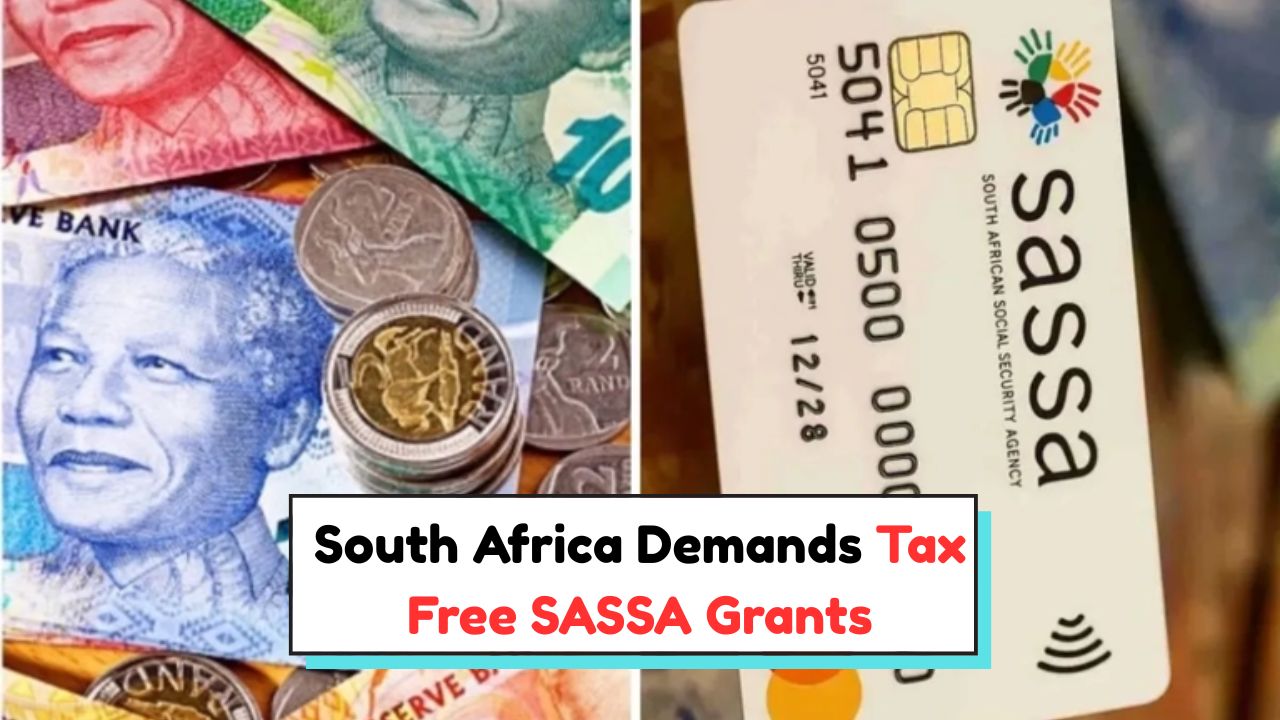Tax-Free SASSA Grants – Calls for South Africa’s social grants to be made explicitly tax-free are growing louder as households battle stubborn food inflation, high transport costs, and rising debt repayments. Advocacy groups argue that every rand of a SASSA grant—whether the Older Persons, Disability, Child Support, Foster Care, or SRD—should reach beneficiaries without any claw-back through the tax system. They frame the push as a matter of dignity and efficiency: grants are designed as a poverty-relief tool, not ordinary income, and taxing them (or even creating uncertainty about tax treatment) undermines their purpose. Economists add that low-income households spend immediately and locally, so keeping grants intact supports township businesses and stabilises demand. On the other side, fiscal hawks warn about revenue pressures and insist that any change must be costed and targeted. With community organisations, unions, and faith leaders all weighing in, the ball is firmly in government’s court. The question is not just “if,” but “how” and “when” a tax-free framework could be implemented responsibly.
Why campaigners want SASSA grants to be tax-free
Proponents say a clear, statutory tax-free status would boost purchasing power without the delays and leakage sometimes seen with ad-hoc top-ups. Because grants are typically spent on food staples, transport, electricity, school needs, and healthcare, the marginal benefit of each rand is high. A tax-free rule would also simplify messaging: beneficiaries wouldn’t worry about filing thresholds, PAYE slips, or whether small side incomes could trigger tax complications on their grants. NGOs argue this clarity reduces administrative stress and the risk of predatory “tax helpers” who charge fees. There’s also a gender lens: many grant recipients are women caring for children or elderly relatives; protecting the full value of grants supports care work that markets undervalue. From a macro view, a tax-free stance can act as an automatic stabiliser—when times are tough, social spending holds up consumption and reduces negative coping strategies like high-cost borrowing or skipping medical visits.
Concerns Treasury will weigh before acting
National Treasury must manage trade-offs. First, the fiscal arithmetic: formally exempting grants or adjusting systems to guarantee zero tax impact has a revenue implication (even if modest) and sets a precedent. Second, equity and targeting: officials may ask whether tax-free treatment should apply across all grants and household income levels, or whether a taper is needed to avoid subsidising better-off families indirectly. Third, system integrity: any change must prevent loopholes where non-grant income is disguised, or where third-party lenders exploit the certainty of tax-free cash flows. Policymakers could explore compromise options—such as reaffirming an explicit exemption in law, creating a protected de-minimis threshold for all social transfers, or pairing tax-free grants with stronger limits on deductions at source. Alternative relief mechanisms (larger grant amounts, zero-rating a wider basic-food basket, or targeted transport/energy vouchers) might also be modelled to compare impact per rand spent. Expect robust consultation with SARS, SASSA, provincial treasuries, and Parliament.
What would need to change in law and in practice
A clean solution would rest on two pillars: legislative clarity and operational execution. Legislatively, government could insert or refine explicit exemption language in the Income Tax framework to state that specified social grants do not constitute taxable income, removing ambiguity and aligning with the policy intent of social protection. Operationally, SARS and SASSA would synchronise data so that grant payments are coded as exempt at source, never generating IRP5/IT3(a) records or withholding flags. Banking partners would be briefed so that automated affordability checks recognise the protected status of these transfers, reducing unsolicited debits and abusive deductions. Communication is critical: simple multilingual FAQs, SMS alerts, and community briefings must explain that beneficiaries do not need to “apply” for tax-free status. Oversight would include audit trails to detect fraud, and sunset or review clauses so Parliament can reassess costs, coverage, and unintended effects after a defined period.
What beneficiaries can do right now while policy is debated
Until a formal announcement is gazetted, the smartest move is to organise your household finances on the assumption that grant amounts must stretch further, not less. Keep your SASSA contact details updated to receive official notices; avoid any adviser who promises “tax refunds on grants” for a fee; and never share one-time PINs. If your grant was declined or reduced, use the official appeal channels promptly and keep proof of submission. Build a simple budget that prioritises food, transport to work or school, and electricity before non-essentials, and consider buying non-perishable staples in bulk with trusted neighbours to lower costs per unit. If you earn small side income, record it accurately—transparency helps with appeals and prevents surprises during tax season. Community advice offices and reputable NGOs can assist with forms and consumer-debt issues. Finally, watch Cabinet, Treasury, and SASSA updates so you can adjust quickly if a tax-free framework is introduced.
